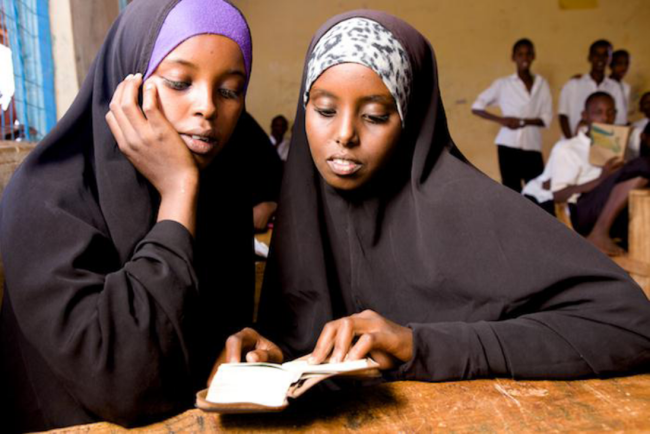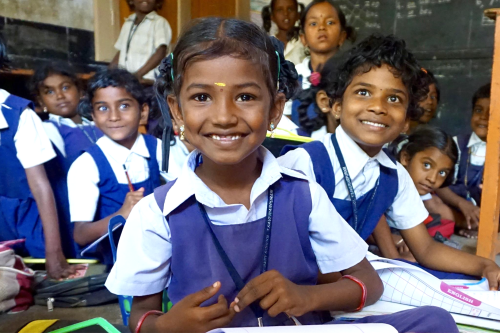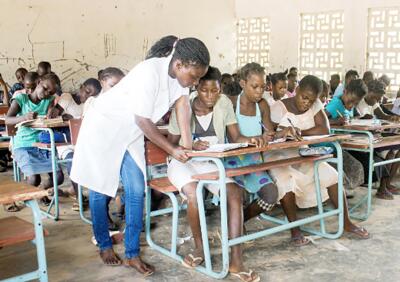International Day of the Girl Child: A Skilled GirlForce

In a global effort to ensure a world free of discrimination against young women, International Day of the Girl Child is celebrated October 11 each year. The United Nations (UN) General Assembly adopted Resolution 66/170 in 2011, designating the day to draw attention to the unique challenges and difficulties girls face around the world.
The theme for this year's International Day of the Girl Child is "With Her: A Skilled GirlForce." This theme marks the beginning of a yearlong effort to "bring together partners and stakeholders to advocate for, and draw attention and investments to, the most pressing needs and opportunities for girls to attain skills for employability."
In order to achieve the Sustainable Development Goals, specifically SDG 5, which focuses on gender equality, it's essential to support and invest in young girls by providing them with skills to expand beyond basic education.
Differences in First and Second Decade of Life
 Over the last 15 years, the global community has made progress in improving the lives of girls during early childhood. According to the UN, girls age 10 and younger are now more likely to enroll in primary school and receive vaccinations and are less likely to suffer from health and nutrition problems than in any other previous generation.
Over the last 15 years, the global community has made progress in improving the lives of girls during early childhood. According to the UN, girls age 10 and younger are now more likely to enroll in primary school and receive vaccinations and are less likely to suffer from health and nutrition problems than in any other previous generation.
However, there are still considerable challenges faced by girls and young women in the second decade of life. Many still do not have access to quality secondary and higher education, are forced into child marriage, have little to no information and services related to health, are denied the means to protect themselves against unwanted pregnancy, and are frequently victims of gender-based violence.
As a recent World Bank report highlights, when girls are faced with obstacles involving education, it weakens solidarity in communities and reduces women's participation in society. A lack of education restricts a woman's voice and role in the household, at work, and in institutions. This disempowers women and girls in ways that dispossess them of their basic rights.
- Globally, nine in ten girls complete their primary education, but only three in four complete lower secondary education.
- The estimated loss of human capital due to lack of access to secondary education ranges from $15 trillion to $30 trillion globally.
What We're Doing
Planet Aid supports projects that aid the development of young girls, ensuring that they have a chance for an education at all levels and a better life. For example, Nikhalamo, Girl Stay in School (GSS) in Mozambique is implemented by ADPP Mozambique and funded by USAID with supplemental funding from Planet Aid. "Nikhalamo" is a word used in the local Chuabo language of Mozambique that translates to "I am here to stay." GSS aims to reduce the obstacles that prevent girls from transitioning from upper primary school to secondary school.

The project is working with 18 primary schools and 3 secondary schools and has assisted nearly 3,000 girls and young women. It is working to improve the learning opportunities for these women by helping them obtain an exemption for school registration fees and providing them with needed school supplies and uniforms. The project is also addressing the problem of forced marriages in the community and building preschools.
Click here to learn more about how Planet Aid supports youth education.
How You Can Help
There are many ways you can use this special day to advance gender equality. Below are a few ideas from Girl Up, a foundation created by the UN in 2010 to help establish equality for females.
1. You can use #GirlHero on your social media platforms to share photos, stories, and raise awareness about the progress that must be made to create equal rights for women.
2. Sign the Girls Count petition to hold the U.S. Government accountable in ensuring all girls are counted at birth.
3. Celebrate in style by purchasing a #GirlHero T-shirt. All proceeds from the shirt sales will go to Girl Up.
